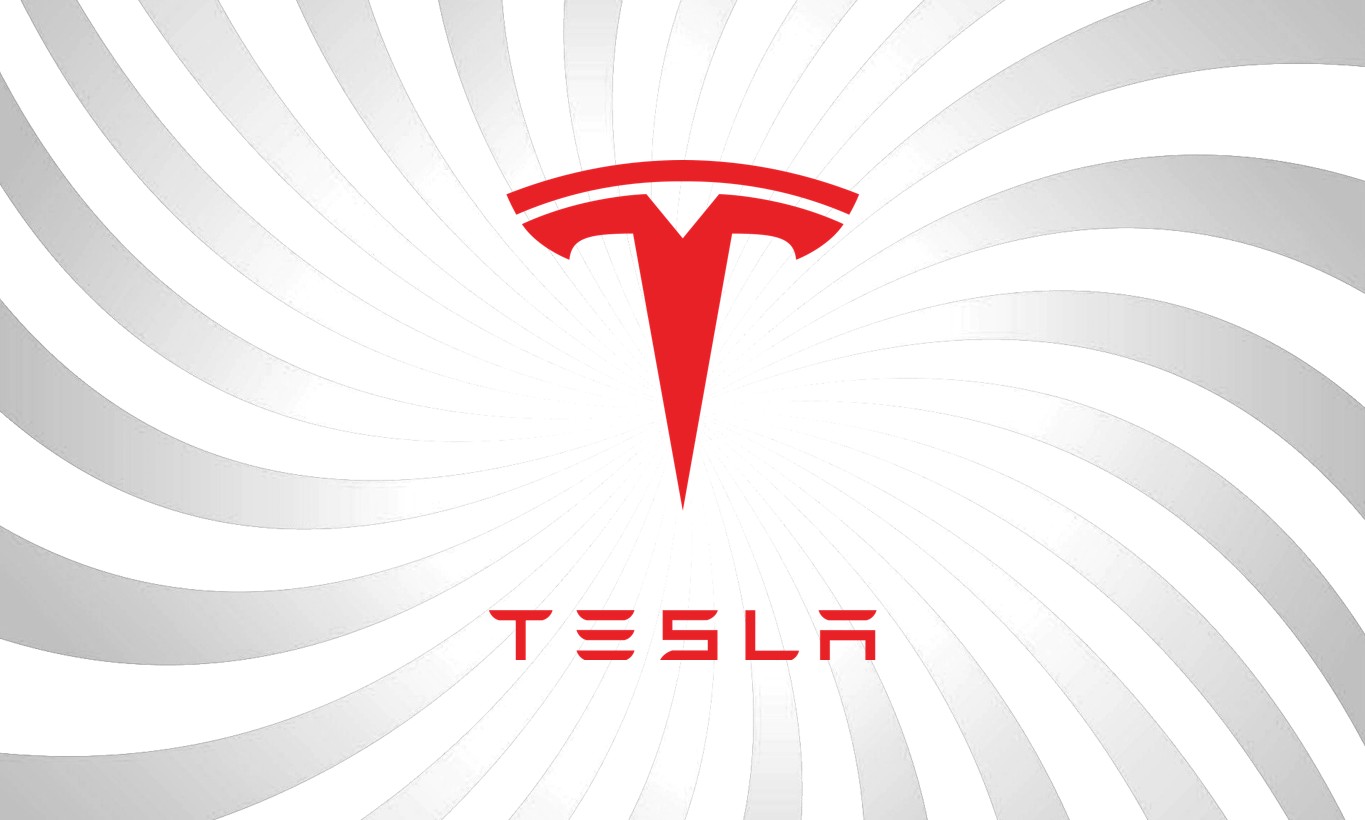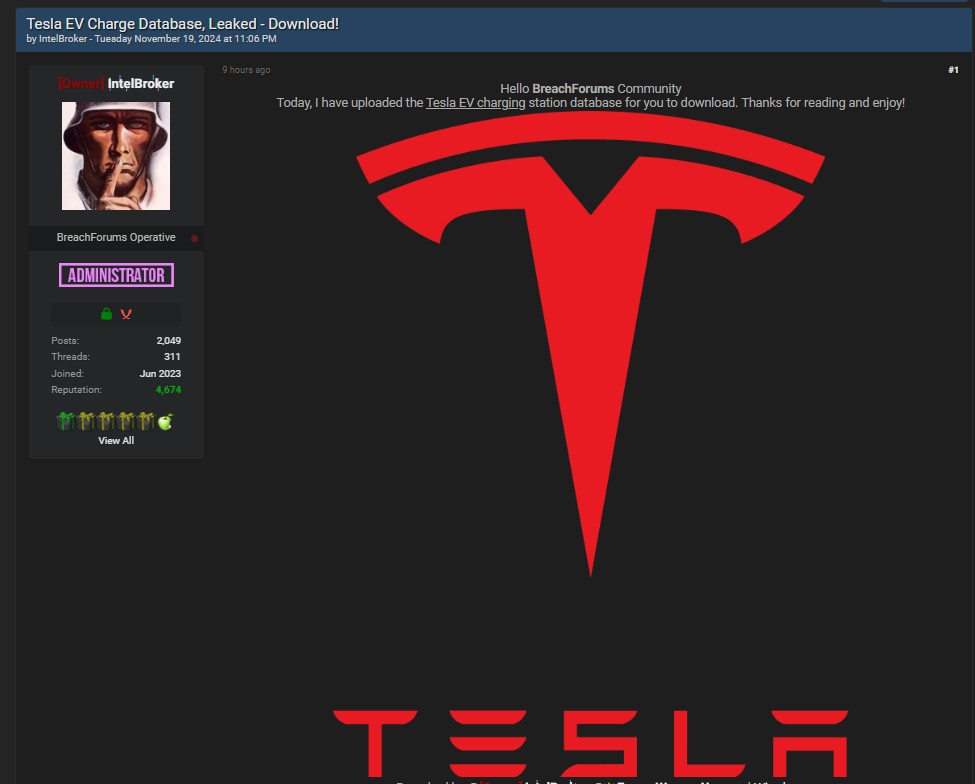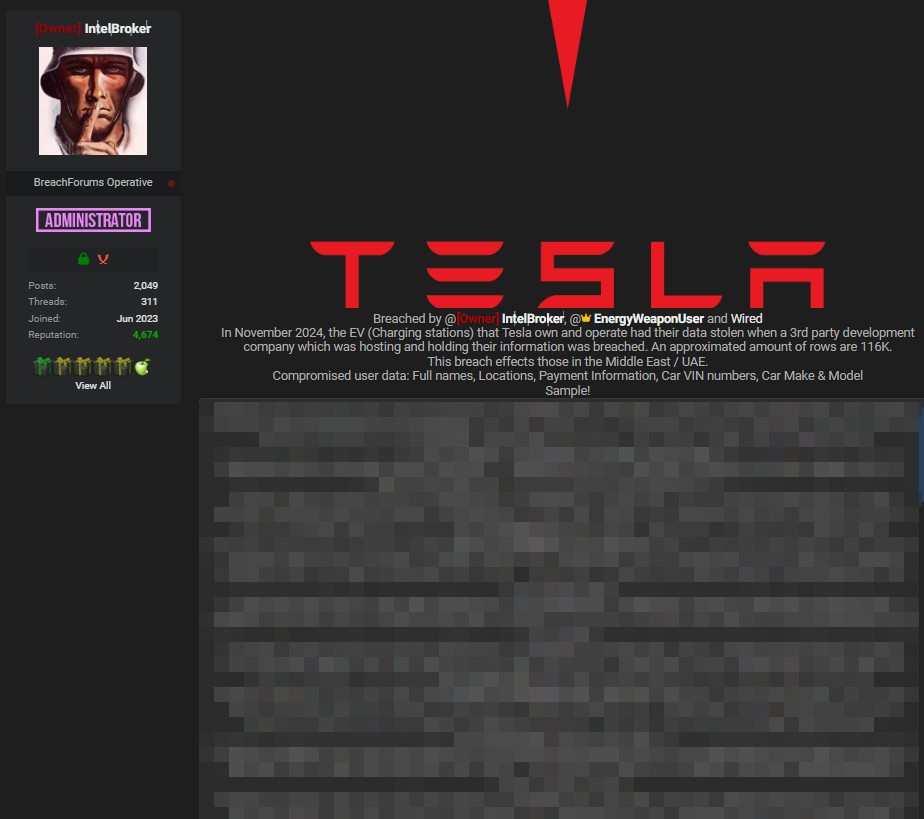
Recently, the threat actor known as IntelBroker , posted an alleged data breach. The post, which appeared on the BreachForums platform, claims that Tesla’s charging station database has been compromised and made available for download.

At this time we cannot confirm the veracity of the news, as the organization has not yet released any official press release on its website regarding the incident. Therefore, this article should be considered as an “intelligence source”.
The post, published on BreachForums, revealed that the Tesla charging station database has been made available for download. According to the announcement, the database contains approximately 116,000 records related to Tesla users located primarily in the Middle East and, in particular, the United Arab Emirates (UAE).

The alleged attack is said to have occurred in November 2024 and is said to have resulted from an exploited vulnerability in a third-party company responsible for managing Tesla charging station data. The potentially compromised information is said to include:
A sample of this data was reportedly shared online to demonstrate the extent of the breach.
Tesla is a global leader in electric vehicle manufacturing and charging infrastructure management. The company operates worldwide, including a significant presence in the Middle East. The charging station network is critical to the success of the company’s operations and customer support, making it a sensitive target for threat actors.
Such an attack could compromise not only customer safety but also the business continuity of the company, with serious implications for Tesla’s reputation and user trust. The potential consequences of this alleged breach include:
As is our custom, we always leave room for a statement from the company, should they wish to provide us with updates on the matter. We will be happy to publish this information with a specific article highlighting the issue.
RHC Dark Lab will follow the developments of the situation to publish further news on the blog, if there are substantial updates. If there are people with knowledge of the facts who wish to provide information anonymously, they can use the encrypted email of the whistleblower.
This article was written based on public information not yet verified by the respective organizations. We will update our readers as more details become available.
Follow us on Google News to receive daily updates on cybersecurity. Contact us if you would like to report news, insights or content for publication.
